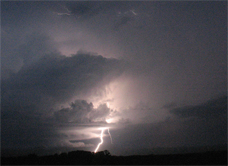Posts Tagged Dr. Grammar
There Are No Data, Only Zuul
Posted by ooaverage in Click This Link to Save the Princess!, From The Desk of the NOAA, The Wonders of Technology on April 11, 2015
NOAA is doing this thing where they revamp their webpages.
The old page had everything that page has. It also included current temp, wind speed and direction, humidity, cloud cover, and precip information for here and a bunch of random towns and cities nearby, and it was all right smack in the middle of the page.
I’m not mad, I just miss it. If those numbers are still accessible somewhere, I’d like to know where.
Also–and this is an unrelated issue–the word data has reached the point where nearly everyone uses it as a singular.
Mind you, I’ll freely admit society is rather liberal with its usage of words, but in this case it just makes sense to let it shift. The data says/This collection of facts/numbers/information says–the exceptions being those who are still trying too hard. I think my stance stems partially from people’s near-universal treatment of data as a singular up until, I don’t know, about two years ago. Suddenly it seems like everyone is back on the data train, even though the word datum is completely foreign to everyone except a few geographers who are hoping for a day in the spotlight.
If you actually use the word datum, knock yourself out, I won’t protest.
We Three or Four Things
Posted by ooaverage in Click This Link to Save the Princess!, Lux et Aqua, Through the Commentator's Glasses on April 30, 2014
1:
This man is was an artistic wizard.
2:
How in the name of Willy Wonka does Mr. Slugworth find out that Charlie has a ticket so fast? Was he hiding in the back of the store? (More Likely: He’s a demon with the ability to teleport)
3A–To the multitudes of news organizations, and most importantly, your editors:
Please stop using the word An before words that begin with a hard H. (If you’ve ever said An hard H aloud without cringing, you are either deaf or actively seek the downfall of the English language, and your help in bringing about said downfall is completely unnecessary)
The point of adding a consonant to the article A is to break up what would otherwise be an awkward diaeresis. (Notice the flow: an anchor, an order, anathema, versus “Hey guys, let’s go to a Arby’s and get a order of curly fries from that A. Athema girl!”(Just call her Ann!))
It sounds like your dinner plans are being made by Porky Pig. Adding the consonant before another consonant is backtracking into the realm of awkward phonetics again, and you’re more likely to start tripping over words, which is a shame. An honor is correct. An historic event is not, unless you talk like a British maid and pronounce it ‘istoric. If you are a British maid, carry on.
3B–You guys again:
Please stop abusing the construction Everything is not. I don’t know if using it to mean Not everything is has been labeled Grammatically Incorrect yet, but if it hasn’t, it certainly should be.
Shakespeare–and his All that glitters is not–is able to get away with it, because he has the excuse of being poetic, and possibly because that kind of thing was completely kosher among Elizabethans. Unless you’re trying to say “Nothing is,” which you hardly ever are, don’t do it.
The construction works with gerunds, because there’s no ambiguity.
“Running is good.” Not ambiguous. The speaker is expressing positive feelings about the act of running.
“Not running is good.” Not ambiguous. Similar to number one, except focused on the act of not running.
“Running is not good.” Not ambiguous. Same as number one, only with negative feelings toward running.
“Everything is awesome.” Not ambiguous.
(Debate the mistreatment use of that poor word as you wish. I’m sorry if a certain song gets lodged in your head.)
“Not everything is awesome.” Also not ambiguous.
Nobody would assume the use of Not everything as a substitute for Nothing, because saying Not everything when you mean Nothing is needlessly confusing, (not to mention that the two are logically unequal*) so it’s safe to say the speaker was making the point that out of the many things that are, there are some that the speaker would find to be not awesome.
“Everything is not awesome.” Apparently ambiguous, although it really shouldn’t be.
If the phrase is read correctly (in a reasonable manner) the not is modifying the following word, awesome, just as it did with good in the running example above, indicating the speaker believes that out of all of the things, none of them are awesome. It does not mean that some things are awesome and some are not. There is an unambiguous way to express that some things are awesome. Not everything is awesome. (Or, even better, Some things are awesome.)
Conveniently, this frees up Everything is not awesome to do its job explaining a sentiment similar to nothing is awesome.
Ideally, (and I am quite guilty of not doing this) you would use a completely different word.
*Take a set A containing a tray of biscuits and a Tibetan Mastiff. If one were to say that out of set A “Nothing is a Tibetan Mastiff,” that would be completely different from saying “Not everything is a Tibetan Mastiff.” (Not to mention that it would be untrue.)



Make a Million Bucks
Posted by ooaverage in Ask Dr. Rocket Surgery, Through the Commentator's Glasses on September 29, 2015
If someone can come up with a functional reverse dictionary, I think they could make a great deal of money on the ads they would no doubt coat their webpage with, since that’s how it’s done these days.
For example, take a word like homunculus. Say you want a similar word, but with a non-person meaning. (If it were a math equation imagine Homunculus – person + thing) As in a perfectly formed tiny version of a thing. Maybe it’d give you simulacrum or something similar as a result, even though it doesn’t quite match the parameters.
My point being that English has a metric stuffload of words and it’d be nice if it came with a manual to navigate from word to word so you could fall back upon it when your mental reference materials inevitably came up short.
Alternate Universes, Dr. Grammar, For the Public Indifference, Words
Leave a comment